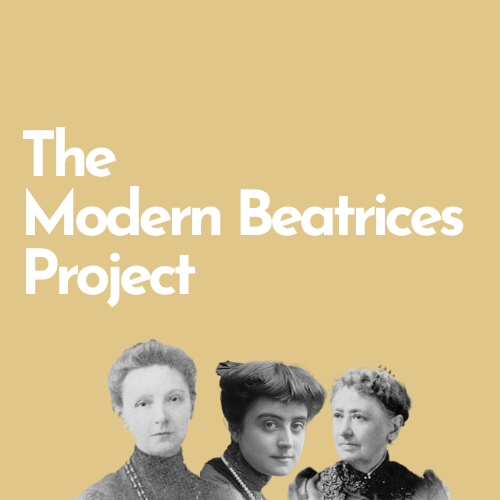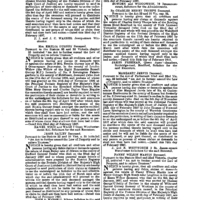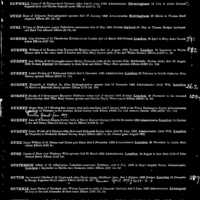Person
Gurney Russell, Emelia [née Batten] (1823-1894)
- Title
- Emelia Gurney Russell
- Full Name
- Gurney Russell, Emelia [née Batten] (1823-1894)
- Place of origin
- Harrow
- Country of origin
- England, United Kingdom
- Occupation
- Suffragist
- Founder of the Kensington Society (Women discussion group)
- Campaigner for women's education
- Author
- Short biography
- Early life and marriage
- She was born on 26 July 1823, probably at Harrow, the elder daughter of the Revd Samuel Ellis Batten (1792–1830), assistant master at Harrow School, and his wife, Caroline, née Venn (1798–1870), daughter of John Venn . Batten, 'whose gay and buoyant spirits made him the playfellow of his children' (Letters, 1), died in Emelia's seventh year, and her younger sister, Florence, died in adolescence. After Batten's death the family moved first to Pinner, in London, then to Hereford. They often travelled abroad and were in Italy when Florence died in 1842. As a result of these early losses, Caroline and Emelia became close friends, their intimacy barely disturbed by Emelia's marriage.
-
In 1852 she married Russell Gurney, an English lawyer and Conservative Party politician who sat in the House of Commons from 1865 to 1878. He introduced legislation in parliament on women's rights to property and to practise medicine.
He supported the Married Women's Property Bill. Under the terms of the act married women had the same rights over their property as unmarried women. This act therefore allowed a married woman to retain ownership of property which she might have received as a gift from a parent. Before the 1882 Married Women's Property Act was passed this property would have automatically have become the property of the husband. The passing of the 1893 Married Women's Property Act completed this process.
The Gurneys had no children, but in 1862 they became guardians of the five children of Gurney's brother John Hampden Gurney. They took a house for their wards which the family shared for three years. Although the ages of the children made it unnecessary for Russell and Emelia Gurney to live with them continuously, Emelia formed close ties of affection with them. - Elizabeth J. Morse, OXDNB entry
- Political activism for women's suffrage and higher education
- In 1860, when she was chairing a committee formed by Elizabeth Blackwell to investigate the possibility of opening medical education to women, she was introduced to the young Elizabeth Garrett. The Gurneys helped Garrett take the first steps in her medical education and Emelia became a close friend, advising her on one occasion to use her feminine charms to overcome the hostility of male doctors.
-
Emelia Russell Gurney was a founder of the Kensington Society of 1865–8, a discussion society of feminists, reformers and suffragists formed after the success of the original committee founded by Emily Davies and others to obtain the admission of women to University Local Examinations (1862-1865).
The Society met regularly at the house of Charlotte Manning in Kensington for discussion of subjects of common interest (1865-1868). Members included Barbara Bodichon, Dorothea Beale, Frances Buss, Elizabeth Garrett, and Anna Swanwick. Mrs Manning became president and ED was secretary. - Papers of The Kensington Society, 1865 - 1867
-
The object of the society was (as Emily Davies described it to a friend) 'to serve as a sort of link between persons, above the average of thoughtfulness and intelligence who are interested in common subjects, but who have not many opportunities of mutual intercourse' (Alice Westlake to Helen Taylor, 20 March 1865, BLPES, Mill Taylor papers, vol. 14, 103). The annual subscription was half a crown. Questions for debate were issued four times a year and members might speak at meetings or submit written answers. Corresponding members submitted papers that were discussed by those who could attend (and who paid a further half-crown for that privilege). By conducting its debates in a private arena, with apparently unminuted discussions, the society encouraged a frank exchange of views.
The Kensington Society had strong connections with Bedford College and Queen's College, Harley Street, the London institutions for the higher education of women.
The lasting achievement of the Kensington Society was the collection and delivery, on 7 June 1866, of a petition to parliament demanding women's suffrage. As parliament debated the Reform Bill in 1866 members of the Kensington Society drew on their networks of friendship and shared experience to collect 1499 women's signatures. - Ann Dingsdale, Kensington Society (act. 1865–1868), OXDNB entry
- A committee was set up after Elizabeth Blackwell lectured on medical training for women, in 1859, and Gurney belonged to it. She helped Elizabeth Garrett, the medical pioneer, with an introduction to William Hawes (1805–1885) (as a grandson of William Hawes (1736–1808) he was related to Russell Gurney); and the Gurneys supported the dispensary Garrett set up in 1866. Emelia confided to Elizabeth Garrett her ambivalence about the use of "feminine arts" to get ahead.
- In December 1867 Gurney was one of the initial members of Emily Davies's executive committee, that raised funds for Girton College.
- Stephen, Barbara Nightingale (1927). Emily Davies and Girton College. London, England: Constable.
- Stephen, Barbara Nightingale (1933). Girton college, 1869–1932. Cambridge, England: Cambridge University Press.
- Before her husband died, in 1878, she was reticent about her activist views.
- Spiritual life
- Emelia Gurney's intense spirituality infused all of her work and, as she grew older, absorbed increasing amounts of her attention. In her youth she and her mother derived great spiritual refreshment from visits to Linlathen, home of the Scottish religious thinker Thomas Erskine. After her mother's death Emelia Gurney attended the series of spiritual conferences held at Broadlands, Hampshire, the home of her friends Mr and Mrs Cowper-Temple (later Lord and Lady Mount-Temple), between 1874 and 1888. She was eager to learn from religious teachers and once told her cousin, 'I have an intense pleasure in being converted' (Letters, 143). She became increasingly interested in the mystical aspects of Christian faith, linking it to her appreciation of beauty in nature and in art. Her family believed this freed her from 'the oppressive Calvinism of … her early youth' (ibid., 142).
- The reading of Dante
- About 1885 Emelia began reading Dante's Divine Comedy for spiritual nourishment and consolation, and in 1893, after a year of illness, she published Dante's Pilgrim's Progress.
- In her later and more suffering years Mrs. Russell Gurney found in the study of Dante a fount of continual interest, and also of consolation in dark hours. Two of her nieces will ever be grateful to have had the gate into this treasure-field opened to them by her, and for her guiding hand among its difficult paths. The way in which she was attracted and inspired by the deeper spiritual teachings of the Divina Commedia is shown in her "Dante's Pilgrim's Progress," the pre- paring of which absorbed her much during a year of great physical suffering and weakness, the interest of the task giving support, and at times carrying her above the sense of pain (Letters, 279).
-
Letter from From E. R. G. to Dr. KER, of Cheltenham. 3 ORME SQUARE, W., 1893.
"Through Dante, in long hours of corroding grief, that obscured earlier visions of faith, old truths gradually again took a deeper hold on me, and spiritual life became in a measure a present reality. Yet it seemed to me very audacious to meddle with such a supreme work of art as Dante's ; and perhaps still more, to touch with my words the eternal truths he brings before us. With such a misgiving, you may judge how deeply thankful I must be to receive from one like yourself the reassuring ex- pression of your sympathy in my presentation of the spiritual pilgrimage the pilgrimage which I cannot but think Dante feels to be the evolution not only of one soul or some souls, but of the whole human race. Thank you again and again for letting me know that your meditations with Dante have supplied you with some mental and spiritual nutrition. Please let me send you Longfellow's convenient literal translation, in case you have it not. It will help you very soon, with your knowledge of French and Latin, to make the original your own". (Letters, 262) - Selected List of Publications
- (1893). Dante's Pilgrim's Progress; or, 'The passage of the blessed soul from the slavery of the present corruption to the liberty of eternal glory.' London. E. Stock.
-
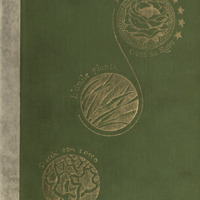 Dante's Pilgrim's Progress, or, The passage of the blessed soul from the slavery of the present corruption to the liberty of eternal glory
Dante's Pilgrim's Progress, or, The passage of the blessed soul from the slavery of the present corruption to the liberty of eternal glory
- (1902) Letters of Emelia Russell Gurney; edited by her niece Ellen Mary Gurney. London. J. Nisbet
- Relation
-
 Anglophone women writers
Anglophone women writers
- Link to external sources
- (1990) P. Levine, Feminist lives in Victorian England: private roles and public commitment.
Linked resources
- Resource class
- Person
Harrow, Londra, Greater London, Inghilterra, Regno Unito
Orme Square, Bayswater, City of Westminster, Greater London, Inghilterra, W2 4RS, Regno Unito
- Media
-
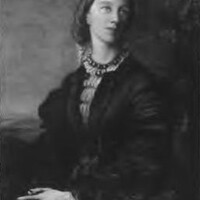 portrait
portrait
Part of Gurney Russell, Emelia [née Batten] (1823-1894)
Annotations
There are no annotations for this resource.
Position: 40 (155 views)
